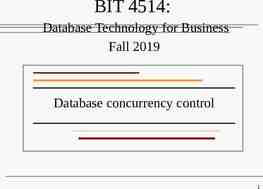SOCIAL INNOVATION INCUBATOR Case Study
6 Slides7.81 MB

SOCIAL INNOVATION INCUBATOR Case Study

OVERVIEW About the Partner: Laoniu Brother & Sister Fund Laoniu Brother & Sister Foundation is a non-public-funded family foundation aimed at promoting growth and development of future generations and advancing social progress through effective charity. The foundation focused on the development of future generation through supporting children welfare and youth entrepreneurship projects and leading social progress with innovative philanthropic ideas. The Situation While it is estimated that as many as 1/3 of millennials see social impact as an important priority in their lives and careers, few students have opportunities to gain exposure to social entrepreneurship in traditional coursework. Most universities in China lack resources in this emerging field, including local case studies, practitioners or adjunct professors with experience in the field, or access to high-quality curricula on social entrepreneurship. Together PIM and Laoniu identified a diverse list of universities who could benefit from this type of program, soliciting input from PIM’s network of leading schools with specialties in fields ranging from policy and business to health and design. In 2018, Beijing Foreign Studies University’s School of Law joined on as a partner, eager to provide both graduate and undergraduate students with practical experiences in entrepreneurship and social impact, followed by the Central Academy of Fine Arts in 2019.

OBJECTIVES From Zero to One: Social Innovation Incubator is a 13-week experiential program on social entrepreneurship aimed at fostering a culture of social innovation among university students in Greater China. Leveraging local entrepreneurs as instructors, online curriculum from Wharton School of Business and seed funding opportunities supported by Laoniu Brother & Sister Foundation, the program empowered participating students to build business solutions to urgent social issues while cultivating core leadership and entrepreneurial skills. Develop Leadership Capacities Expand Perspectives and Inspire Action Provide a platform for young people to practice the entrepreneurial skills and know-how needed to contribute effectively to impact- driven ventures or business enterprises and develop as leaders. Guide university students to learn how to identify social problems, understand real-world contexts locally and globally, and build an enterprise, broadening perspectives on social issues and their solutions. Engage the Community and Make Real Impact Engage social entrepreneurs and organizations as mentors and case studies, while providing resources and seed funding to support students in driving projects having a meaningful impact for local communities.

APPROACH Leveraging social entrepreneurship curriculum from leading universities around the world and drawing from our network of partner organizations, PIM developed Zero to One – Social Innovation Incubator program, launched at Beijing Foreign Studies University in 2018 and the Central Academy of Fine Arts in 2019. Bringing together undergraduate and graduate students from diverse majors, ranging from law to business to design, students formed teams to develop their social enterprise idea over the duration of a 13-week course, featuring: Entrepreneurs As Mentors & Enterprises As Case Studies Students are guided through their social entrepreneurship journey by entrepreneurs with rich social innovation experience, recognized by Forbes 30 Under 30, World Economic Forum, and top global universities. Instructors facilitate the experiential curriculum designed by PIM, including case studies discussions, skill workshops, and small-group mentorship. World-class Online Curricula With Skillbased Training From Zero to One uses a blended online and offline curricula on social entrepreneurship, rooted in project-based learning. Online lectures from Wharton and Acumen are combined together with offline workshops and project work. Students work closely with instructors as mentors, providing them with personalized support To ground theory in real world examples, the course included field trips to local social enterprises. Students connect with local entrepreneurs as inspiring role models, while engaging with their beneficiaries and engaging first-hand with local issues. Seed Funding Select teams are awarded funding and matched with mentors to implement their idea for up to one-year postprogram. Teams are equipped with resources and networks to build, measure, and learn as they develop their impact model. Teams also create and share toolkits and guides that allow for the project to be replicated in the future. With over 60 participants in 2018 and 2019, student teams developed 12 unique community projects, and 7 were selected by a panel of judges for funding to continue the project with guide from mentors for up to a year after completion of the course. winning student projects: Mobibox - Aims to scale a complete take-out recycling mechanism to replace the current use of disposable packaging boxes on college campuses. Left Right Project - Uses art education in migrant community centers to empower migrant children to express their voices, share experiences and foster creativity. Kibera Project - Promotes sustainable ecotourism and DIY handicraft experiences targeting Chinese tourists to generate greater income for slum inhabitants in Nairobi, Kenya.

RESULTS Survey results reinforced that the program provided students with the opportunity to engage in a high impact, active learning experience, while incubating projects with meaningful community impact. Academic partners reiterated that Zero to One program added value to their campus community, as a high-engagement program distinct from both traditional classroom experience and co-curricular opportunities available for students. 82% reported they felt more confident and empowered to solve urgent social issues and to be a changemaker. 75% expressed a desire to launch or support a social enterprise or organization tackling social issue in the future. 100% 85% reported that the program equipped them with relevant business knowledges and helped them realized the importance of creating social changes in their future careers. agreed the program help strengthened meaningful skill sets, including leadership, teamwork, decision-making, entrepreneurial mindsets. “What you are doing now is different from what your peers around you are pursuing, you are achieving things even you never imagined you could accomplish. I believe you all set a good example for your classmates and even for me. I see the impact and aim to support more students embark on the path of social innovation.” - Fu Hongyu, Deputy Dean of Beijing Foreign Studies University

ABOUT PIM PIM empowers young people with the education, resources, and networks to become mission-driven leaders and effective changemakers. We partner closely with stakeholders (including universities, foundations, social organizations) to provide education and leadership programs and capacity building initiatives founded on a “learning by doing” model for investigating and solving social problems. Interested in creating an experiential leadership development program for your community? PIM can help. With experience leading transformative education programs for over 2,900 young leaders since 2014, and a network of over 160 innovative social innovation partners in China, Rwanda, India, San Francisco, and more, PIM can help you tailor impactful professional development experiences for your community of young leaders that transfer back to positive community impact. www.pimchina.org [email protected]






